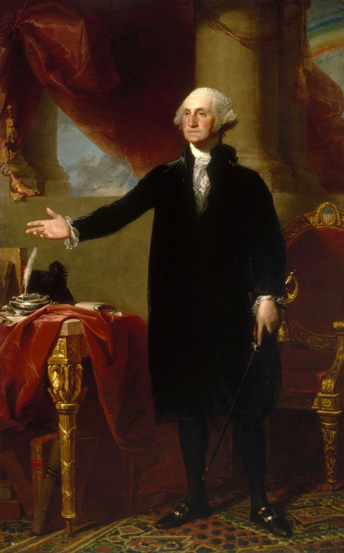 With all the hubbub these days about pointing out the connection many of the great men of our past have to slavery it can be easy to throw out the good with the bad. Such rush to judgement has hit Thomas Jefferson, Robert E. Lee, Thomas Jonathan "Stonewall" Jackson, and even the Father of our Country, George Washington. I fear that the modern progressive urge to us slavery to purge our history of much of the greatness and to paint America in a light that demands apologies at every step in our history we have begun to lose some of what truly makes this nation great. I think Washington is an excellent example of that phenomenon. I don't think that we should ever ignore, excuse, or forget the fact that George Washington held over 300 people in involuntary servitude in order to make Mount Vernon operate smoothly. That is as real a flaw as a human can have and without this knowledge we never can have a true understanding of the man. But we must never allow that to become the entire Washington story. Washington was so much more than a slave owner and his actions in life have helped to forge a better nation for Americans of all races. 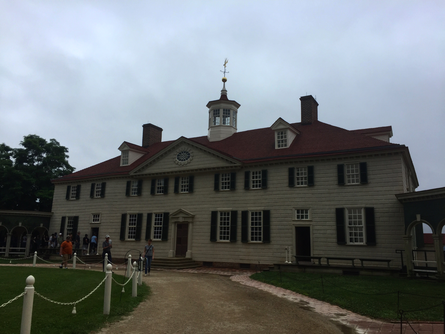 Washington was a successful businessman, an agricultural scientist, a farmer, a soldier, a surveyor, a politician He pulled off some of the most storied victories in American Military History. His crossing of the Delaware and subsequent victory at Trenton we works of genius. His actions on the battlefield in both the French and Indian War and the Revolution demonstrated competence, skill, and courage. He inspired a forlorn fledgling nation and led the people to victory. Through his service in the American Revolution, he gained a lot of power and influence. There we even members of his military circle that suggested a coup, that he seize power and become the military dictator or king. Washington responded to this by reporting to Congress upon the Treaty of Paris and resigning his military commission, handing the military to Congress and returning to Mount Vernon. It was an incredible, selfless act that left power where Washington believed it belonged, with the people. 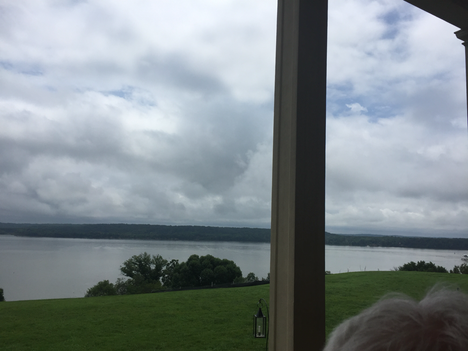 Washington attempted to retire but was called back to service when the state delegations elected him as the President of the Constitutional Congress. You can see it in the process that the framers had Washington in mind for the President all along. And he did ascend to the presidency. His two terms set several precedents that still stand with the office today. At the end of his second term, true to form, he hung it up. It was time for America to move forward, to not rely on Washington at every turn. It was time for change and a future. And that is what the nation had because of Washington. Through courage and humility, Washington truly fathered this nation. He led by example and helped to lay a foundation for our system of government. These are the traits in Washington that we must never forget. We must never let the modern narrative dehumanize this giant of a man or let his influence on the greatness of America from being reduced. We stand on the shoulders of giants and Washington is one of the chiefs among them. Consider the word of the eulogy given by General Henry "Lighthorse Harry" Lee: “First in war- first in peace- and first in the hearts of his countrymen, he was second to none in the humble and endearing scenes of private life; pious, just, humane, temperate and sincere; uniform, dignified and commanding, his example was as edifying to all around him, as were the effects of that example lasting.”
0 Comments
By Sam Burnham @C_SamBurnham 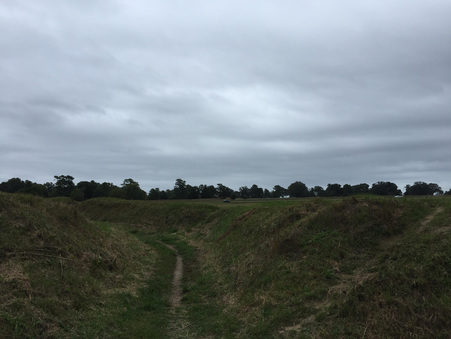 Inside a Parallel, Facing the British Headquarters Inside a Parallel, Facing the British Headquarters On October 19, 1791, exactly 235 years ago today, British General Cornwallis signed the document of capitulation at Yorktown, Virginia. That effectively put an end to the American Revolution and secured Independence for the United States. The surrender ended the Siege of Yorktown, a military action in which allied American and French forces under the command of Generals George Washington and Compte de Rochambeau pinned the British against the banks of the York River and then used artillery to shell them into submission. 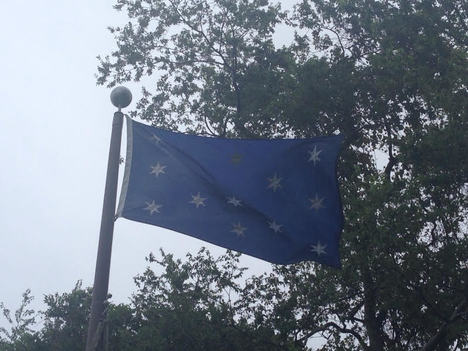 The Flag of Washington's Army The Flag of Washington's Army The Allies created a perfect storm. The brilliant young Frenchman, Major General Marquis de Lafayette, had pursued Cornwallis onto the Virginia Peninsula as the British force was attempting to escape to fight another day. Washington heard of this development in New York and recognized an opportunity to put an end to the war. Feigning a siege if New York, he sneaked his army to the south before British commander Sir Henry Clinton could do anything about it. What followed was one of those legendary American marches that we've seen turn the tide in wars. When an entire division, or even an entire army just gets up and relocates over an "impossible" distance in an "impossible" amount of time - the "we have to do this right now" American feat of military mobility. Washington's army marched from New York to Virginia in time to trap the British. While the French fleet arrived just in time and clobbered the British naval force sent to rescue the Redcoats, Cornwallis went from facing off against the 24-year-old Lafayette to being outnumbered 2-to-1 and trying to also outwit Washington, Rochambeau, Henry Knox, and Baron von Steuben. And let's be honest, he wasn't trapped on a peninsula awaiting evacuation because he was handling Lafayette. 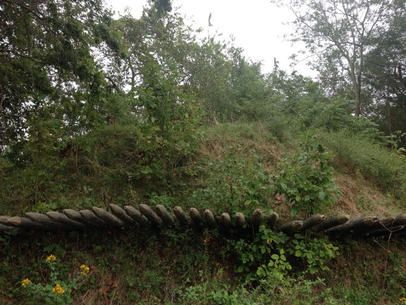 Redoubt 10, on the Banks of the York River Redoubt 10, on the Banks of the York River Parallels, trenches, were dug across the battlefield. Yorktown was not a traditional battle in terms of infantry lining off and firing while trying to outflank each other or break the lines of fire. Yorktown was a siege. The Allies dug trenches to put artillery in and shelled the British. When the Redcoats fell back, the Allies built a closer trench. The second trench's completion was dependent on the capture of two British redoubts - earthen mini-forts protected by armed Redcoats and abatis. The French took Redoubt 9 and the Americans captured Redoubt 10. The taking of Redoubt 10 is another legendary American military feat. It guaranteed the completion of the second parallel and effectively sealed Cornwallis' fate. (As well as provided one of the few positives you'll ever hear me utter about Alexander Hamilton.) 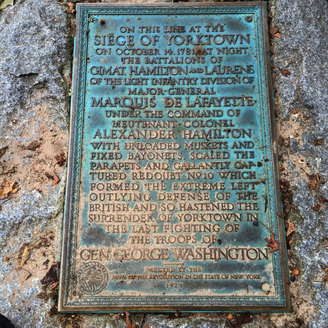 The Monument at Redoubt 10 The Monument at Redoubt 10 To take the position, Alexander Hamilton led light infantry armed with unloaded muskets, to avoid having an accidental discharge tip off the British, on a head-on bayonet charge. They went up the slopes, through the abatis, over the top and quickly subdued the British forces inside. Once artillery batteries were put in place, Cornwallis was done. Washington signed the ceasefire document at Redoubt 10 and the two sides sent representatives to discuss surrender. Capitulation was finalized on the 19th. 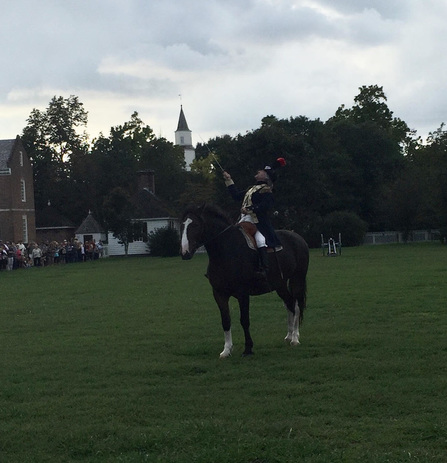 A Living Historian Depicting Lafayette at Williamsburg A Living Historian Depicting Lafayette at Williamsburg One of my favorite stories from Yorktown, probably one of the most American things to happen there, was about the song Yankee Doodle. The British had made the song as an insult to the Americans. The song is a depiction of a stupid and naive American who foolishly thought he could be the 18th century equivalent of a trendy hipster, much less a true gentleman. Lafayette, a fascinating man who deserves his own story here, gave us one of the earliest 'Merica moments. Instead of one of their typical marches, Lafayette ordered his band to play Yankee Doodle. At the surrender ceremony. In front of the defeated and embarrassed British Army. The cocky Frenchman slapped the British with the truth that they didn't just lose and lose badly, they lost the Yankee Doodle.
|
Sam B.Historian, self-proclaimed gentleman, agrarian-at-heart, & curator extraordinaire Social MediaCategories
All
Archives
November 2022
|
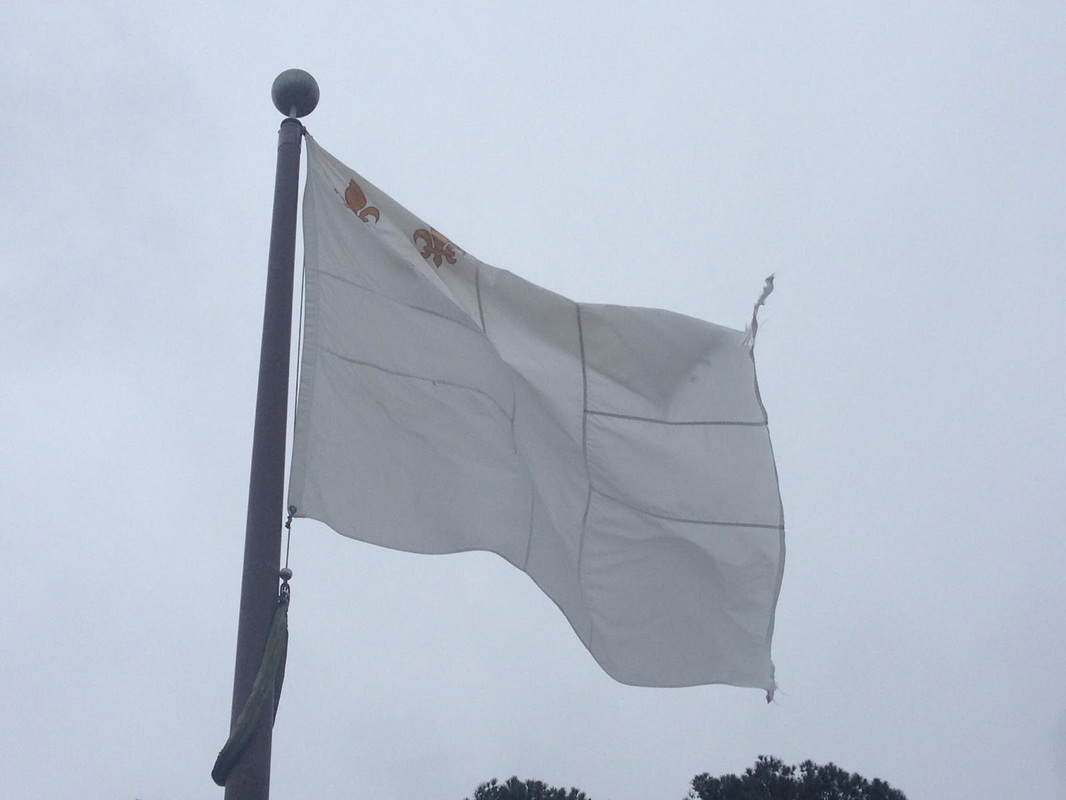
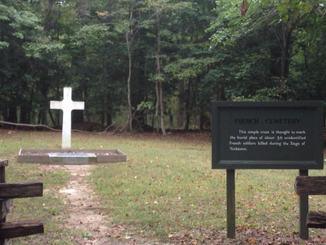
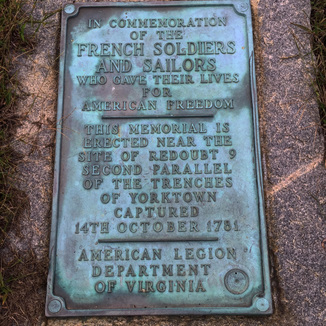




 RSS Feed
RSS Feed
